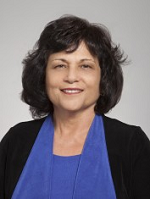 |
| Orbimed's Aya Jakobovits |
Adicet Bio has jumped out of stealth mode--more or less--with a $51 million A round and plans to combine two platform technologies into a next-gen approach on immunotherapies. The company was founded in 2014 and quietly launched a few months ago, says ex-Kite CEO and Adicet founder Aya Jakobovits, who's been working as a partner at Orbimed while she assembled her new team.
While keeping much of the in-house work on immunotherapies under wraps, Jakobovits bought out a small Israeli company called Applied Immune Technologies, which has been refining "T‐cell receptor‐like" antibodies designed to hit disease‐specific intracellular peptide targets. That technology was inspired by the work of Yoram Reiter, who's specialized in the intracellular proteome and spent 5 years working on antibody design at the NCI, pursuing applications in cancer, viral and autoimmune diseases.
Not surprisingly, Orbimed led the maiden round for the Menlo Park, CA-based company, joined by Novartis Venture Fund and Pontifax.
A number of biotechs have been adding a focus on T-cell receptor tech, including Jakobovits's former company Kite Pharma ($KITE) as well as Juno Therapeutics ($JUNO). The U.K.'s Adaptimmune has made it their primary focus while startup Unum Therapeutics has been involved as well, searching for a universal T-cell therapy. Intracellular targets offer a wider number of shots on goal that can be instrumental in fighting cancer, and the Adicet CEO acknowledges that oncology is one of several disease arenas that they'll be exploring.
But that's about as far as it goes.
"We are not disclosing details" about the in-house work, says Jakobovits, aside from saying that they're pursuing a novel approach to developing off-the-shelf, or allogeneic, therapies that can be more easily manufactured than the personalized T cell approaches now in development.
Adicet starts out with 8 staffers, adds the CEO, with plans to quickly expand to about 30 by the end of the year. And AIT will continue operating as a subsidiary in Israel.
Jakobovits also isn't revealing much about the biotech's clinical timelines or how long this round will last, aside from saying that they are "very well financed" for now.
- here's the release